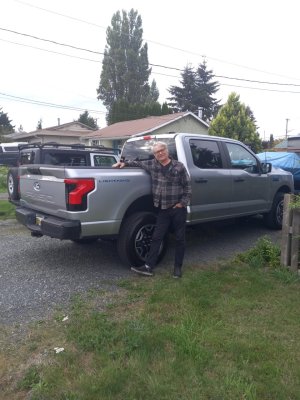Alex_c
Well-Known Member
Somewhat related story. Just put a fresh 351 into my F-250, and took it up to Kentucky-Alleyne from Vancouver for a shakedown run. Fuel mileage was terrible due to what I later found out was a fail-safe thermostat that got stuck open (never buy one, they’re stupid) and probably also due to an old O2 sensor. Stopped at the gas station in Merritt after getting a whopping 19L/100km, and there was a massive lineup for the Tesla charger at the Esso (near the Walmart on the east side of town). Not sure I’d want to be participating in that towing a trailer as the line was wrapped around the parking lot. But then also I’m not sure I wanna be participating in 12 mpg fuel economy  .
.
Looks like there is room for fast charging capacity in Merritt. It will be interesting how charging distribution pans out, based on need in major routes as a function of average range.
Looks like there is room for fast charging capacity in Merritt. It will be interesting how charging distribution pans out, based on need in major routes as a function of average range.
Last edited:

